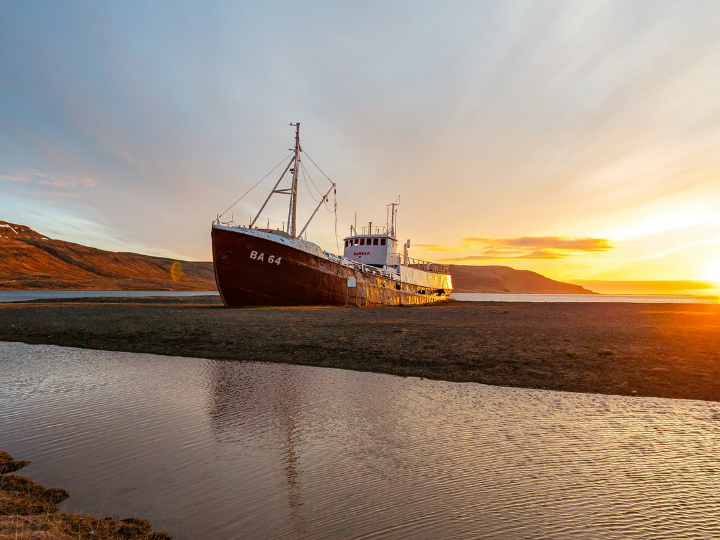by Nikolaus J. Kurmayer
The war in Ukraine has focused attention on liquefied gas (LNG) to replace Russian supplies coming via pipeline. Germany, France and Italy are all planning to rent or acquire special floating terminals in order to increase import capacity.
While replacing Russian oil and coal is considered doable, gas is more complicated because deliveries rely on existing pipeline infrastructure linked to Russia.
But the war in Ukraine is forcing EU governments to speed up the search for alternatives.
“We can report that construction on the alternatives is progressing very well and quickly,” explained Germany’s vice-chancellor Robert Habeck on Friday (25 March) as he briefed journalists on progress made in ensuring the country’s supply security.
To ship gas across long distances, it needs to be cooled down to -160° Celsius and compressed into liquid form, reducing its volume by 1/600th. This process requires terminals for the liquefaction and regasification process, which usually take around five years to build.
Over the past weeks, Habeck has visited potential LNG suppliers like Canada, the US, Norway and Qatar in a bid to replace the 46 billion cubic meters of Russian gas that Germany consumed last year.
But even if those countries were able to increase production, Europe lacks the import capacity. In Germany, the first LNG terminal is due to enter operation in 2026, which has prompted Berlin to look elsewhere.
The German government has instructed utilities RWE and Uniper to rent three so-called Floating Storage and Regasification Units (FSRUs) from the Greek company Dynagas and the Norwegian subsidiary of Hoegh.
“The news that I can make public now is that we have created the framework for companies to rent so-called FSRUs, which are special ships that can land LNG and regasify it,” Habeck said.
Dynagas did not respond to a request for comment on how far the talks have progressed with RWE regarding the two floating terminals.
Floating Storage and Regasification Units (FRSUs) are often former supertankers which have been repurposed to regasify significant quantities of LNG. While onshore terminals must follow strict construction regulations, all that is required for floating terminals is a deep water port that can land very large ships.
Germany’s first floating LNG terminal is expected to be operational already before the end of the year, with the rest of them due by mid 2024.
For the coming winter, that will allow Germany to receive 7.5 billion cubic meters of LNG, going up to 27 bcm by the Summer of 2024 using these retrofitted tankers moored at German ports and fitted with pipes connecting them to the shore.
The rush for FSRUs
Alongside Germany, other European countries have started looking towards floating LNG terminals as pressure grows to move away from Russian gas.
Italy, which is similarly dependent on Russian imports, also signalled its interest for two FSRUs.
“Today we officially mandated (gas group) Snam to negotiate the acquisition of an FSRU and the leasing of a second,” said Italy’s energy transition minister Roberto Cingolani in a parliamentary hearing, Reuters reported.
Likewise, the French government has tasked Total Energies and a subsidiary of Engie with installing a floating terminal in the harbour of Le Havre, Les Echos reported.
Greece is an exception. Before the Ukraine war, the Hellas Motor Oil company launched construction of the Dioriga FSRU terminal, which is due to be completed at the end of 2023 to serve the Hellenic and Southeast Europe markets.
Altogether, this means additional demand for at least six floating LNG terminals across Europe. The problem is, there are just 33 of them around the world, fewer than the 36 that were estimated to be operational by today four years ago.
Outside Europe, floating terminals are already commonplace. An industry report published in April 2020 found that 19 countries imported LNG through FSRUs.
Costs
Floating terminals come at a lower initial cost than comparable onshore terminals, with analysts saying that the cost of a new FSRU “can typically represent only 50-60% of an onshore terminal”.
Over time, this would be somewhat counterbalanced by higher operating expenditure for every cubic meter of gas processed. Floating terminals also require a deep water port, as well as gas infrastructure on land to store and transport the gas, the International Gas Union said.
A big advantage, however, is that they are flexible and can be sold or transported elsewhere after use.
*first published in: www.euractiv.com




 By: N. Peter Kramer
By: N. Peter Kramer
